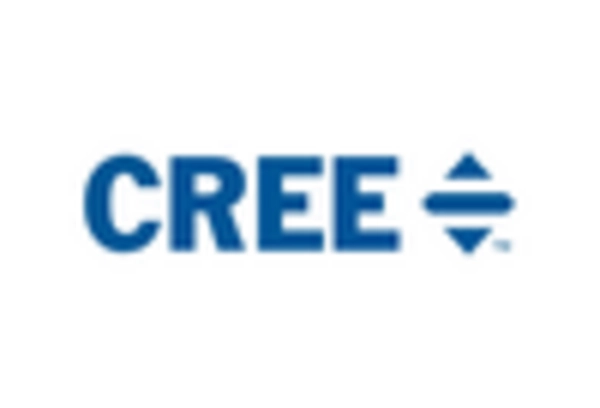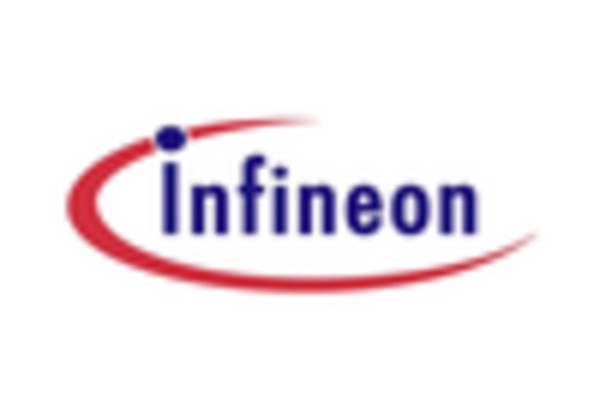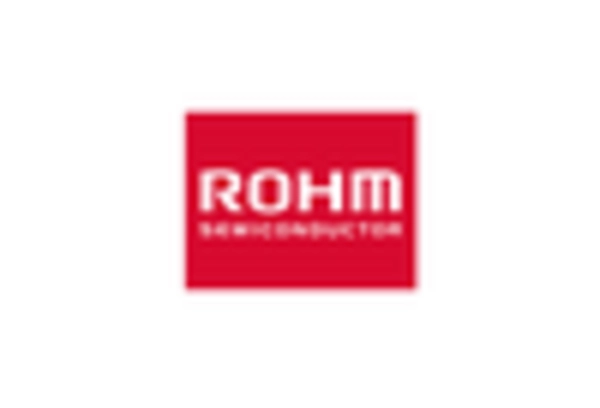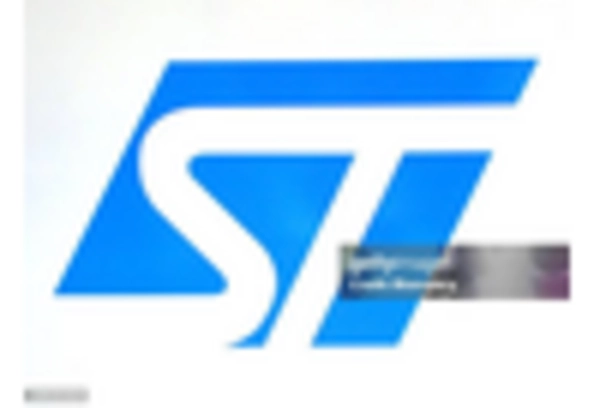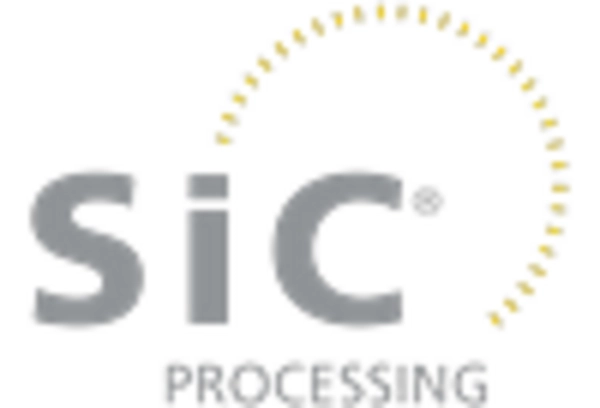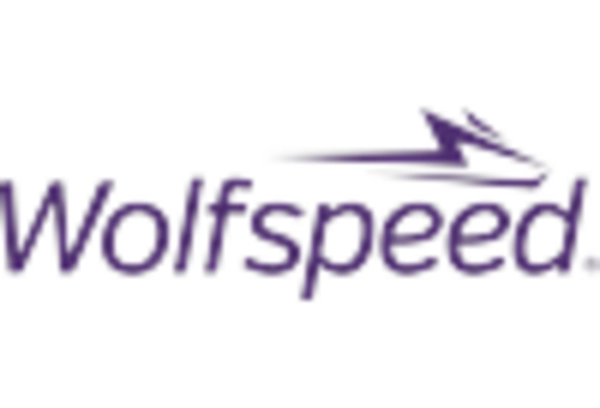The competitive dynamics within the silicon carbide market in Germany are characterized by a robust interplay of innovation, strategic partnerships, and regional expansion. Key growth drivers include the increasing demand for energy-efficient solutions and the rising adoption of electric vehicles (EVs). Major players such as Infineon Technologies AG (Germany), Cree Inc (US), and STMicroelectronics NV (France) are strategically positioned to leverage these trends. Infineon Technologies AG (Germany) focuses on enhancing its product portfolio through continuous innovation, while Cree Inc (US) emphasizes its leadership in wide-bandgap semiconductor technology. STMicroelectronics NV (France) is actively pursuing partnerships to bolster its manufacturing capabilities, thereby shaping a competitive environment that is increasingly collaborative and innovation-driven.In terms of business tactics, companies are localizing manufacturing to reduce lead times and optimize supply chains. The market structure appears moderately fragmented, with several key players exerting considerable influence. This fragmentation allows for niche players to emerge, yet the collective strength of major companies like Infineon and Cree Inc ensures a competitive landscape that is both dynamic and challenging for new entrants.
In October Infineon Technologies AG (Germany) announced a strategic partnership with a leading automotive manufacturer to develop next-generation silicon carbide power modules. This collaboration is poised to enhance the efficiency of EV powertrains, reflecting Infineon's commitment to innovation in the automotive sector. The strategic importance of this partnership lies in its potential to accelerate the adoption of silicon carbide technology in electric vehicles, thereby positioning Infineon as a frontrunner in this rapidly evolving market.
In September Cree Inc (US) unveiled its latest silicon carbide-based power devices aimed at the renewable energy sector. This launch underscores Cree's focus on sustainability and its intent to capture a larger share of the green technology market. The introduction of these devices is significant as it aligns with global trends towards renewable energy solutions, potentially enhancing Cree's market position and driving revenue growth.
In August STMicroelectronics NV (France) expanded its manufacturing facility in Germany to increase production capacity for silicon carbide wafers. This expansion is indicative of STMicroelectronics' strategy to meet the surging demand for high-performance semiconductors. The strategic importance of this move lies in its ability to enhance supply chain reliability and reduce dependency on external suppliers, thereby strengthening STMicroelectronics' competitive edge in the market.
As of November current trends in the silicon carbide market are increasingly defined by digitalization, sustainability, and the integration of artificial intelligence (AI) in manufacturing processes. Strategic alliances are becoming more prevalent, as companies recognize the need for collaboration to drive innovation and efficiency. Looking ahead, competitive differentiation is likely to evolve from traditional price-based competition to a focus on technological advancements, innovation, and supply chain reliability. This shift suggests that companies that prioritize R&D and strategic partnerships will be better positioned to thrive in the future.


